Episode 259 - Practicing Innovation with Jeremy Utley
Innovation and ideas are at the core of entrepreneurship, right? A lot of it comes naturally to us, but what would happen if we treated these things like habits to be practiced?
Today’s guest, Jeremy Utley, likes to say that innovation is a practice, not an event. Jeremy is the co-author of Ideaflow: The Only Business Metric that Matters, a General Partner at Freespin Capital, and an Adjunct Professor at Stanford’s d.school, where he teaches classes on innovation, leadership, and transformative learning. He also hosts the Paint and Pipette Podcast where he interviews the most innovative ventures shaping the world today.
In this conversation, he breaks down the art and science of innovation so that we can become better practitioners and come up with creative solutions that redeem broken parts of the world.
All opinions expressed on this podcast, including the team and guests, are solely their opinions. Host and guests may maintain positions in the companies and securities discussed. This podcast is for informational purposes only and should not be relied upon as specific advice for any individual or organization.
Episode Transcript
Transcription is done by an AI software. While technology is an incredible tool to automate this process, there will be misspellings and typos that might accompany it. Please keep that in mind as you work through it.
Rusty Rueff: Welcome back to the Faith Driven Entrepreneur podcast. It's such a pleasure to have you here week after week. Thanks for continuing to give us just a little bit of time of your life. Innovation and ideas are at the core of entrepreneurship, correct? A lot of it comes naturally to us. But what would happen if we treated these things like habits to be practiced? Today's guest, Jeremy Utley, likes to say that innovation is a practice, not an event. Jeremy is the coauthor of Idea Flow, The Only Business Metric That Matters. He's a general partner at Free Spend Capital and an adjunct professor at Stanford's d school, where he teaches classes on innovation, leadership and transformative learning. He also hosts the Paint and Pipette podcast, where he interviews the most innovative ventures shaping the world today. In this conversation, he breaks down the art and science of innovation so that we can become better practitioners and come up with creative solutions that redeem broken parts of the world. Let's listen in.
Rusty Rueff: So, William, what have you practiced today?
William Norvell: What do I practice today? That's a good question. I got up and did my workout this morning, so I guess I practiced some jump squats. That was the first time I'd ever done that before. Dumbbell jump squats. My trainer was like, grab 25 board dumbbells, squat down and then jump in the air. So that was a new practice.
Rusty Rueff: That's pretty good. That's pretty good. Yeah. I realized this morning as we were preparing for this podcast that there are lots of things that I do day in, day out, whether it's my spiritual time, my workout time, you know, all of my work time. But I don't really think about it as practice. I think about it as well. This is just one thing that I do. And then I do another thing. I do another thing. And if I think about it as practice, then I'm actually preparing for something for the future. And our guest today knows a little bit something about practicing something that's really important, and that's the practice of innovation. And we're going to welcome in right now Jeremy Utley. We are so happy to have you on the podcast. We've been looking forward to this conversation.
Jeremy Utley: Yeah, likewise.
Rusty Rueff: Because you bring to our entrepreneurial audience something that everybody cares about and that's innovation and you bring experience around innovation and your idea that, you know, innovation and creativity and entrepreneurship, you know, we can demystify it as art and help it become science if we want to. And we just think that's awesome and we're so happy that you're here. And I'm going to let you just dive right into that topic and get us going.
Jeremy Utley: Yeah, practice. I mean, that's one of my favorite topics, you know? No one would say they're a pianist. If you said, Hey, tell me what you do. And you go, I'm a pianist. You're really. When's the last time you play piano? Oh, I took piano lessons when I was five, you know, Or I'm a swimmer. Really? When did you swim? Oh, I did swimming lessons when I was a kid. And, yeah, you know, we know if you're not playing the piano, you're not a pianist. If you're not swimming laps, you aren't a swimmer, right? When it comes to innovation, for whatever reason, and perhaps I'm, you know, enemy number one enemy of the state in so far as part of my life is running workshops. But for whatever reason, when it comes to innovation, if you ask someone about their innovation, what they talk about is a bootcamp or a hackathon or a sprint years ago, and that's the proof. And they've got a LinkedIn badge, right? And it's like, I don't have a LinkedIn badge for piano or for swimming. Why do I have it for innovation. And to me, what I've seen is there's this over association of innovation with events. And you know, at the d school I'm all about leveraging its brands or a hackathon or a workshop. That's fine. But if those events are the extent of your practice, you're in trouble. Just like Williams said, he was doing jump squats with dumbbells, which sounds superintendents. I did Renegade Rose today and I wasn't happy about that. But, you know, just like all of us are sitting here right now, if I said, Hey, let's do a 400 meters sprint, you know, unless Williams train doing that this morning, chances are it's not going to go, well.
Rusty Rueff: I can do that.
Jeremy Utley: You're ready? You're ready
Rusty Rueff: Yeah, I'm ready. I'm a runner. And I just because.
William Norvell: I'm totally low.
Jeremy Utley: Ok. But that's actually perfect, right? Why are you ready? You said because I'm runner. When's the last time you ran? This morning. Okay. Yeah. So I would say we have a lot of corporate athletes, which is a generous term who are pulling [hammy], at the local track meet. Right. Because the last time they ran a sprint was in high school. Right. They show up at the track, meet in their, you know, Cheeto stained tracksuit and wonder why they're not winning medals. But it's because you've been sitting on the couch. It's no wonder. Right. But there's not a mindset of you're not. I need to stretch. You know what I need to do training, you know. And for us at the d school, one of the big shifts that we've seen is unless you start to treat innovation or creativity as a capacity that can be built and nurtured and grown and attended to regularly, you're never going to win the medal and you're often going to pull a muscle.
Rusty Rueff: Yeah, that's good, because as you said, you show up to the event and you have a practice. Don't expect that you're going to get great results, right? You're just not going to get great results. Can you dive into the word innovation for us and your definition? Because I think sometimes what can happen is innovation gets sort of categorized into the tech world and think, Yeah, well, we have many entrepreneurs that are listening here who are very innovative, but they may have nothing to do with technology whatsoever.
Jeremy Utley: Yeah, I would just I would say simply, I agree it's a bit of a distraction. It's an effective solution to a problem, full stop innovations, an effective solution to a problem, and ideally, the best solution to a problem. Right? It could be technological, but as somebody who's in h.r. A new, you know, recruitment strategy could be an innovation, right? That's not a technology necessarily or even a market facing product per se. Somebody is in finance. A new expense reimbursement process or procedure could be an innovation, right. But it's an effective solution to a problem. That's an innovation. And a lot of times technological innovations get held because an entrepreneur has brought technology to bear in an area or on a problem that folks previously hadn't considered bringing it to bear or it hadn't been brought to bear as well. But I think there's an over association of the kind of influence of technology in the realm of innovation. For me, innovation is really about effective problem solving. And anybody who's solving problems, actually, if you realize that, as we say in the book, every problem is fundamentally an idea problem, it shifts your entire orientation to how you think about being effective at work.
Rusty Rueff: That I'm going to for our listeners, you just referenced the book, your book you talk about as idea flow, right? The book that you wrote.
Jeremy Utley: That's right. Yeah. It came out last fall and it's based on, you know, 12 years of leading the accelerators at the d school, leading executive programs and really seeking to build capacity in organizations all around the world and Israel and Columbia and Japan and New Zealand, helping organizations build a robust capacity to routinely develop effective solutions to problems are facing both internal and external.
Rusty Rueff: Ok I am going to turn it over to William right after this. But so you've got a mindset, right? You had folks who have the mindset that innovation is a practice and I got to always be practicing to get better. And then you have those who have the mindset that, well, it's an event, I just show up. Do we learn the difference or is that innate or do we just, you know, stumble our way into it? Because clearly people have different mindsets and how do you pass that out?
Jeremy Utley: Yeah, I think ultimately it comes down to building a discipline and building attention. You know, I'll never forget I remember very distinctly we were invited by a hardware company to do a leadership development program a few years ago so we're working with a global leadership team. There's hundreds of thousands of employees in this company and, you know, call it top 30 leaders, folks who report directly to the CEO are involved in this training. And we talk about foundational tools like interviewing customers, like brainstorming solutions, low resolution prototyping and experimentation, user testing, kind of foundational tools in the Innovators toolkit. And we were giving assignments to the leaders and we're meeting every two weeks and we're trying to give micro assignments, stuff that takes 30 minutes or less every two weeks. I'll never forget we're given the assignment to run an experiment. Mind you, we didn't put any parameters around what it had to be or anything like that. Just any experiment is sufficient for our purposes, mostly because we wanted to see what does that word even mean and how does somebody go about framing an experiment and executing one without, you know, too much kind of guidance? And I'll never forget this. A senior technology leader in Ireland, her name is Ann, it got to Ann we're kind of going around the Zoom room and it got to Ann and I said, Ann would you tell us about your experiment? She said, Jeremy, it's Wednesday morning here in Ireland and I'm on meeting number 32. When do you expect me to run my experiments? You know, and I really resonated with that. She had no space whatsoever. And what I told her was I said, okay, fair question. What's your calendar look like next week? She said, It's crazy. And I've got a hundred meetings, you know, all this stuff. You know, we basically got to the point where looking at our calendar a month out and I said, Now I want you to create a calendar event. She said, okay, what should I call it? I said, Run, experiment. And then I said, okay, now I want you to look a week farther out. She said, Okay, eyes wide open. I said, Great. Now block another calendar event called Review Data from Experiment. Right. And what I realized in that moment was, you know, the way I can conceive of it is like Tetris. You know, these Tetris blocks are falling. And, you know, if you think about it like they're falling towards us in our calendars and our kind of Herculean task as managers and professionals these days is moving things around and fitting everything in. And our days are completely packed in a task like run, an experiment comes in, we go, Oh, where do I put it right? And we're. Actively playing kind of schedule Tetris. And to me, what I've said is I know for sure if you take as a premise one, innovation is a low probability effort. Meaning what? Two, you need to run experiments to figure out what works. Robust experimentation requires ideation, right? Which requires three. You need time to ideate. Then therefore, it stands to reason not to be too much of a nerd here. But for do you need to wait until you know what the problem is to create space, to generate solutions and test those solutions? Because most people wait until they encounter a problem, then go, Oh, what am I supposed to do? I do not have any time to deal with this? You know, and you look at, you know, [......] Innovator's, you know, Jeff Bezos, block two days a week in the early days of Amazon where he didn't schedule any meetings. And by the way, people go, well, that was a startup at the time. I actually kind of checked just to make sure their market cap was 17 [x......] okay. At the time that Amazon is worth 17 times, Barnes and Noble, Bezos is blocking two days a week. So he control the Internet because he knows what innovation is only going to happen if I give it time. And I would say foundational practices. What time are you giving innovation? What time are you giving the practice of generating solutions to problems that are emerging? What time are you giving to running experiments to learn which of the solutions I've imagined are the best suited to the problem I'm trying to solve? Right? And that's kind of an a priority consideration. You don't need to know what the problem is to know that the answer is going to be generating and testing solutions. And yet most people are on their back foot, scheduling all meetings and never blocking time to kind of go on the offensive or be proactive about innovating. So it's kind of a fundamental practice. So going back, I think I was just I like to trace the train back to the station. Rusty, you had asked about how do you shift from the mindset of, you know, an event to a practice. Part of it is becoming aware and a lot of times the pain is actually what allows somebody to realize they need to make a change. Right? And this pain of the quick fix wasn't that quick and it wasn't really a fix, right? Usually I encountered people like that who go, where do we go wrong? And it's on the heels of an implementation disaster where the status quo approach to problem solving goes off the rails and they go, Well, what's the right answer? I go, Hang on, forget the right answer. What's the right approach to solving the next problem like this? And that's really more of a systemic question about how are we undertaking the problem of solving problems?
William Norvell: That's really good. That's really good. And speaking of taking the train back to the station, sometimes some of my favorite questions, you know, it kind of goes without saying, but I want to let you say it. I feel like we skipped a little bit. Why is innovation so important to entrepreneurship? Just take us down that, in your view, for a second. So see, entrepreneurs listening like this sounds great, but is this necessary to build a business, to sustain a business, to change a market?
Jeremy Utley: Well, I would again, I think the word innovation is a bit of a distraction. And here's what If you substitute the phrase effective problem solving for innovation, yeah, the question becomes a moot point, right? Why is effective problem solving important to entrepreneurship? Like no entrepreneur listening to this podcast thought? That's a great question, right? They'll go, That's called my day job, dude. Like I'm solving problems all day long, right? And if you understand what I do, which we all do kind of anecdotally, which is you have to be a real nerd to have a favorite cognitive bias. But I am a real nerd and I do have a favorite cognitive bias, and that's called the einsteinling effect. And the enisteinling effect is the human tendency to fixate on a solution. And here's what happens with the Einsteinling effect. This has been demonstrated since the 1940s, even more recently at Oxford. What happens when a human is asked to solve a problem? The first plausible seeming pathway they latch on to? And two things occur when that happens. One, they cease searching for alternative solutions, and two, they become blinded to better possibilities. And so if you know, the quality of a solution has no correlation with when it arrives to you, which is to say your best ideas don't come first. And what I would love for people listening to this podcast to take away is this simple phrase first idea, worst idea. Not that it's actually necessarily empirically true, but our default bias is first idea, best idea. That's actually that's the way we all approach a problem. And whatever solution we got both implement let's go right. And I'm an entrepreneur and I'm a you know, I do it quickly. Well, when you realize when you start reading as much research as I do, you realize there's no correlation between when an idea arrives and how good it is relative to the rest of the ideas. There's a fascinating paper called the Creative Cliff Illusion, where researchers studied the expectation of an individual problem solvers solutions. So they say, Hey, here's an insight challenge or creative challenge. When do you expect your best solutions to come? And then they had them do a, you know, brainstorming activity basically to generate ideas. And one of the things that they found is most people had the expectation, what they called the creative cliff, that there's this precipitous decline over time, that at some point your ideas become less creative, less good, etc.. And they called the paper the creative Cliff illusion, because it turns out there's no cliff. Your creativity doesn't decline. And in fact, many times you hit like a ramp and your creativity and the effectiveness of the solutions actually increases. If you know Asterix in the paper and if you go to the footnotes, you say, what's the if? The extent to which someone's ideas get better over time is primarily a function of the answer to this question. When do you think your best ideas will come? The person who says quickly has fewer and worse ideas overall. The person who says later has more and better ideas overall. And so they can have the biggest variable that affects the quality of ideas curve over time is what's your expectation? And we realize that most of us, our default expectation is whatever idea comes to me first. That's what I latch on to. That's what I commission, that's what I implement, etc. And it's only when the wheels fall off down the line, I go, Wow, that actually wasn't a good idea, that I realized there's a problem with that approach.
Rusty Rueff: How much of that first idea, you know, Oh, that's got to be my best idea is just comes down to intellectual laziness. Right. I just don't want to push harder.
Jeremy Utley: Rusty it is a great point. It's not just laziness. It's actually it turns out there's a psychologist named [.....], who dubbed this term cognitive closure. And what he found is one of the most psychologically distressing phenomenon to human beings is a lack of resolution. Leaving something unresolved is deeply distressing. And so what we like to do is we'll just settle on something, even if it's not optimal, we'll settle on it because we know who no longer have to act like. I don't know the answer to that anymore. And so it may be partially laziness, but I think it's actually reinforced by this deep aversion to the unknown. We don't want things to be unknown.
Rusty Rueff: Yeah, I recognize that. And I read a fascinating stat once that 95% of the people who built a house, right. Designed it with an architect and built it will move out of it before they renovated. Oh, wow. Because they just can't go back and say, you know what? We blew it. The bathroom should have been over there. We didn't put the extra bedroom on that. We should have. And they just take off and go.
Jeremy Utley: That's wild. Well, you know, I did an assignment in my class this past quarter. I teach a class in the spring called Transformative Design, which, you know, we've been talking about design as it relates to products or services in the marketplace, etc.. But you can also turn that process on yourself. You know, and Dave Evans and Bill Burnett have designed Your life, which is a fantastic book and Body of Knowledge. We have a class, myself and Bernard Roth is one of the faculty directors of the d school. We have a class called Transformative Design, and in that class we do a bunch of be turning the design process inward on the most important project of all, which is your life. And one of the things that we did this year is we assigned students what we call an idea quota, where we talk about the book. But it's the basic premise of an idea quota is whenever you're trying to solve a problem, instead of coming up with one idea, generate ten ideas, ten solutions, and not good ones, they can be bad ones. It doesn't matter. Note I've never said good. You know, so far most people say, How do I come up with a good idea? See, that's the wrong question. The right questions that you come up with more ideas. But we can get there perhaps later. Remind me to talk about the renowned sociologist Taylor Swift in a moment. But when I had my students do the idea, quota, I gave them I built like a very, you know, kind of scrappy chat bot that I call Triton, which is like a simple kind of it's like a conversation partner to kind of push your thinking. I had a friend who built another one, and so I gave students a choice. You can use whatever you want, use paper, you can use Triton, you can use this other thing. But every day you got to do an idea quota. And every day I sent them a small survey, which was, you know, like, what's your name? What was your problem? What was the best solution that you came up with and what number was the solution? Number one, two, three, four, all the way through ten and beyond. I had about a thousand responses to this survey over the course of the quarter. What is your guess as to what percent of the favorite ideas were the first idea? What percent of students said? My first idea was my favorite idea.
Rusty Rueff: 90%.
William Norvell: I'm going to go big the other way. $1 0%.
Jeremy Utley: Yeah, the answer is 3.9%.
Rusty Rueff: After they'd gone through the exercise.
Jeremy Utley: After they generated ten, I said, Which one was your favorite? Oh, I see. And 96% of the time, a solution other than the first thing that comes to mind was the favorite. Hmm. So you go wait. And by the way, you know, the first question in the survey is always what's the obvious answer to you? Like, what would you do if you're just going to solve this problem and move on? What would you do? So the first answer is kind of the plausible solution. And 96% of the time, by the way, the average time it takes somebody to complete this exercise is like 4 minutes. So you spend 4 minutes and 96% of the time you get a better answer. And some of these questions were like, should I continue my Ph.D. program? You know, I mean, they're not like, what dorm room am I going to go to for dinner? Which can be an existential crisis all its own. Right? But some of these are major questions. How do I respond to my mom requiring me to move back for the summer? Right. And 96% of the time, if a student pushed beyond the first answer, they got a better answer.
William Norvell: Okay. So we're not letting you off Taylor Swift's look, we're coming back to that. But I'm going to pause here, too. Is there a reverse is there a paralysis by analysis? Right. Is there hey, 100 ideas is too much. You got to move, right? You got to do something right. Is there a reverse.
Jeremy Utley: Great question. So flow is really the important operative term, an idea. Flow. Meaning what we're after is movement. I'm not advocating an idea pond or an idea dam or I want idea flow. And so in generally speaking, what that refers to is the practice of generating and then experimenting your way forward. Right? So, you know, a statistic that generally stuns people and some of the it kind of opened our eyes to this angle into the problem of solving problems is when we show this research, if you ask yourself, how many ideas do I need to have to have a commercial breakthrough, I'm answering your question just in a slightly different way William I promise and if I don't answer it, just push me. How many ideas do you need to have to have a commercial success? I won't have you guys answer it, although if you want to. Or what do you think you can start with 1 to 2220, 20 billion. How many ideas do you need to have to have a commercially successful product?
William Norvell: It's got to be hundreds. I'm going to go with 200.
Jeremy Utley: There's actual research, by the way. So this is not like we're not just like you. How do you feel? It's like there's empirical research. Yeah. Linus Pauling once said the way to have a good idea is to have a lot of ideas. And so my question is define a lot. How many is a lot
William Norvell: right? Yeah, it's interesting.
Rusty Rueff: Yeah. If you could get into the hundreds, I would say it would be in the hundreds. But I don't know that that many people can actually get into those kinds of numbers.
Jeremy Utley: The empirical answer is 2000.
William Norvell: Wow. Wow. That's crazy
Jeremy Utley: So we've studied, you know, a bunch of different organizations from like Idio to Taco Bell. You know, the head of Taco Bell's food lab when she was making the Doritos Locos Taco, this one product, she said she tried over 2000 different variations of that shell. Wow. Okay. James Dyson, when he was making the bagless vacuum, he made 5126 different prototypes before the 5,127th worked in pharmaceutical discovery, the number is more like 10000 to 1 molecular compounds to get to one viable compound. But the point is the kind of requisite number of ideas to get to a commercially successful product. Granted, that's a particular outcome is enormous. Most people I ask people all over the world, most people say 20 or 30. That's kind of the mode answer you guys had to underwrite, but it's still an order of magnitude more, you know, which is as well. So then going back, William, to your question of how do you overcome a paralysis by analysis, what I'm not saying when I say you need 2000 ideas to get a commercially successful one is stop before you do anything, generate 2000 ideas, and don't do anything until you come up with two. That's not what I'm saying. What I'm saying is over the course of fits of starts and experiments and iterations and pivots and all that, there's going to be 2000, you know, bodies, Post-it notes flying in the wake of the one success. Right. But the point is, how do you move forward? And it's not by generating a ton and moving on, but it's by generating more than you think you need and then scrapping it quickly, executing experiments that likely lead to more ideas and refinements and that sort of thing. And then doing it again. That's the flow. And I love the picture of, you know, the Dead Sea versus the Sea of Galilee. You know, they're fed by the same source. And yet while the Sea of Galilee is one of the most, you know, biodiverse ecosystems in the world, the Dead Sea is dead, nothing can live in it. What's the difference? The Sea of Galilee has an outlet. And when you think about bringing life to your innovation process, there are actually there has to be an outlet. It's not just about damming up a bunch of ideas and then a priori deciding which one's the best one, which is the needle in the haystack. Here, no movement and experimentation and learning is essential to healthy idea flow as well.
William Norvell: The main lesson I took away is if you thought entrepreneurship was hard before, it's extremely harder than you thought it was. Well.
Jeremy Utley: But it's also it's invigorating and exhilarating. And it's when you get your expectations set appropriately, you start to act differently. Right. For an early entrepreneur, I mean, like, you know, launch pad, the accelerator I've been privileged to co-lead for a bunch of years. What we know is the most important thing is not the idea. It's the founder's behavior. Your idea is probably going to change and you're going to iterate a ton. So we're not selecting ideas. What we're selecting is the kind of people who will succeed and the kind of people who are succeed. The fundamental behavior we're looking for is will they take action in the face of the unknown in order to turn unknowns into knowns? Will they execute scrappy experiments, or will they come back having done something and probably failed or flailed, but at least learned between meetings? That's kind of the singular defining characteristic of a successful entrepreneur. And so, yeah, it takes grit and perseverance, but it's also, if you have your expectations said, I'm going to try a bunch of stuff, lots of it's not going to work. But then when it does work, it's really going to work well. And I'm going to be the person who's uniquely qualified to figure out how to make it work better, because I've built this muscle memory around experimentation. And by the way, all of my learning is proprietary data. Nobody else in the world knows what I know because of all you know, like Thomas Edison said, right. I haven't failed 10,000 times. I've found 10,000 things that don't work. You say, what's his competitive advantage? Well, anybody else who's trying to solve that problem has to start from zero. And he already knows a bunch of things that he doesn't need to try and get it right. And so to me, I mean, just kind of responding to your comment. Well, yeah, it's hard, but when your expectations are appropriately said, you know, this is actually it's a volume game and it's a darts game and it's how can I be faster? How can I be cheaper, How can I be scrappier? Then you can almost like gamify it for yourself and have some fun with it. And that's the BBC really succeed are the people who treat that like a game and who enjoy the exploratory adventure of it all.
William Norvell: Now that's great. And I think back to all my classmates did Launchpad. I came over and watched all the presentations numerous times and you know, you probably know the stats on this, but very few of them are still working on that concept. But what they learned was how to become entrepreneurs. And some of the most successful entrepreneurs from my class did what turned out to be a terrible idea in Launchpad, but they learned this process right to iterate and maybe it was the fourth idea they worked on that actually became the thing, right? Yeah. And that's what I remember runs remember back. It's like, oh yeah. Like those are some of the most successful entrepreneurs I know, but it wasn't that specific idea necessarily, right?
Jeremy Utley: We're choosing people, you know. I mean, I'm rereading Ed Chapman's book, Creativity Inc, and one of the things he says is one of the biggest misconceptions about creativity is that ideas are more important than people. He said, No, if you give a mediocre idea to a good team, you'll be far more successful than giving a good idea to a mediocre team, right? And so we are selecting a launchpad and what is the person we play them in, so to speak. We're looking at a person's behavior and the good news for every individual listening is it's not about if you have a good idea, it's about how are you behaving, you know, in relation to the market, in relation to your potential customers. And if you start to refine these behaviors, you're going to stumble upon what works much more reliably than if you start with the immaculate conception of the perfect idea.
William Norvell: I love that. I love that the Swifties are lining up the text line here. So we got to we got to get back. We got to get back there really, aren't they? So, you know, where are you? Bring the Taylor Swift philosophy here.
Jeremy Utley: I knew that I had you at Taylor Swift.
William Norvell: Oh, you. You have no idea how much you had, bro. You have no idea.
Jeremy Utley: So she won an award at the iHeart Music Awards this year, the Innovator Award. And her speech is worth Googling. We put in the show notes or something. That's great. But it speaks to, I think, a really deeply held cognitive bias, which is most people want good ideas. And what I say is you don't want good ideas, you want more. And if you say, well, how do I generate more ideas, then here's what I say generate bad ideas. Bad ideas are. The way to get more and more is the way to get good. And what Taylor Swift said when she accepted her award is I want I really, really want young people to know that it's my hundreds or thousands of dumb ideas that led me to my good ideas. You have to give yourself permission to fail. She said, I don't like to fail. It's embarrassing, but you have to do it. And I feel like one of the kind of one of the real, you know, mirages in the desert is people are wanting the good idea rather than getting in the habit of and being comfortable with sharing and making bad ideas. Kevin Kelly, who was recently on this podcast, I think hit one of his kind of bits of wisdom, is a multitude of bad ideas are necessary for one good idea. I don't think anyone takes that seriously enough. And as simple tests, you can ask yourself if you want to just What's my capacity for bad ideas? Write down one bad idea. Right now, everybody can do this while they're listening. Literally. What would you just take a ten second break? Try to write down a bad idea. And for most people, it's phenomenally hard because, like, as soon as you start running, say, well, why am I even wasting the ink? This is stupid. You know, this guy asked me right down that. What's the point of that? Exactly. If you cannot write down a bad idea, you will not come up with a good idea. Period. Full stop, Right. Steve Jobs, You know, people go, well, what about Steve Jobs, Right? He was legit. He only released, you know, exceptional products. Well, you watched Johnny's memorial speech at his funeral. You know, Johnny said he said every day Steve and I would have lunch. And every day Steve would say to me, Hey, Johnny, you want to hear a dopey idea? And he said, most of the time his ideas were very dopey. In fact, sometimes they were truly terrible. But every once in a while, they take the air out of the room and leave us breathless in wonder. Right. As only Sir Johnny can say. Right. But the point is, Steve Jobs knew what Taylor Swift knows. If you want a good idea, have bad ideas and share bad ideas. Don't hide them. Share them with the world's greatest designer, for crying out loud. And it's that permission to have bad ideas that most teams in most organizations are lacking. They really want people to have good ideas. You know, you think back, like Williams said, like stat class, like basic finance, basic stat class. There's this thing called the bell curve. Everybody knows it. You know, most natural phenomena are normally occurring. For those of you watching on video, you can see this is a bell curve, right? Roughly, don't quote me on it, but it's approximately right. And this shows how like you've got delightful ideas and you've got Dopey, as Steve Jobs would say. Right. You're going to have some delightful ideas. You can have some dopey ideas, and then you've got a bunch of ordinary stuff right in the middle. Right. And what most people think is, I love the delightful stuff and I'll tolerate the ordinary stuff. I just don't really want the dopey stuff. So they think they're going to chop off the dopey end of the spectrum. But you know what they do when they chop off the dopey end of the spectrum, what they end up with is a bunch of ordinary. Because they don't realize that quality is a function of variation. And the same variation that leads to dopey is what you could say. Dopey is the price of delight. Dumb ideas are the price of delightful ideas, and if you're unwilling to have the dumb, you're not going to get the delightful. And so that's a bias you have to overcome, is stopping trying to come up with good. And start trying to come up with more and bad and good just flows from that.
William Norvell: Yeah, I love that. Reminds me, the late Kobe Bryant used to say, you know, the only way to make the game winning shot is to risk missing the game winning shot. Yeah, right. That's the only way to do it. And he missed a bunch and he said, and that's why I had the confidence that one day they fall. Right. But it's so profound, right? It's the only way to that brilliance is typically through not brilliant.
Jeremy Utley: Well, you know, like, if somebody doesn't like dumb, what? Maybe a different word that I would use that maybe is like a more permissive word is obvious. Sure. And especially the context of a team where most teams run into trouble is they say, okay, it's our job to be creative. And one of my favorite collaborators, getting Dan Klein, who runs a Stanford improvisers troupe at the university. And he says, Don't be creative. Be obvious. And what you find, especially if you're working with a diverse group of people, is because your unique background and context and culture and, you know, race and religion and gender and is different than mine. What is obvious you is wildly unexpected to me. And if I take your obvious, which is not wildly unexpected to me and just say what is now obvious to me based on that wildly unexpected thing, that which is obvious to me is wildly unexpected to you. Right. And so neither one of us have to be creative. It's like, I hear your thing. I go, okay, what's that really smart to say? I just have to have permission in the context of a team to dare to be obvious. And if I'm willing and daring enough to be obvious and I trust that the team's not going to laugh at me or insult me, but they're going to take that and they're going to build on top of that. What you find is a team where every member is just being obvious kind of spirals into totally uncharted territory because nobody is treating it as their individual responsibility to be creative.
William Norvell: I love that. I love that I've seen that play out so many times, right. Where you know, someone kind of, you know, what's the common phrase? Oh, I just thought everybody saw it. It's like, No. Right. Absolutely not. Like it just came to you because of your life experience, how God wired you, what you've been through, and how you see the world. But like, no, I would have never seen that, you know, And I love that point because I've seen it so many times, you know, and like, somebody finally speaks up at the end of the meeting, they're like, Oh, I just thought everybody already thought of that. Yeah, Like, that was the obvious answer to me. So I didn't even want to say it. It was so clear. It's like, no, nobody else saw it. Like, thank you. Speaking of experiences like that. Yeah, I want to take this down into that exact place. Right. So let's turn a little bit to how God views innovation, how God views problem solving, how God views being obvious. How do you think? The scriptures and innovation work together. How do people search for that part of themselves, in God's Word and in the experiences that God takes them into? Just how does all that come together for you?
Jeremy Utley: One of the things that has been astounding to me is, I mean, definitions matter, right? And so if I ask you what's an idea? I have four daughters, one of whom is five, and I hear that the five year old female of our species asks more questions than any other kind of human being. I can attest to that. And if she asks me, Daddy, what's an idea? What do I say? What do you say? And it's one of those things, you know, it's not obvious. There's like every definition. It's like there's big words, right? Which makes it very difficult. And for me, here's what I found. From my understanding of the underlying neuroscience. An idea is a connection, period. It's a connection between two things that you already know. What turns out. And going back to the question about the Scriptures and our relationship with the Lord. Most people believe that idea comes from nothing. And that's not true. No idea. Human beings are incapable of [.....] creation. Only God is capable of that. Human beings, when we have ideas, what's happening is two parts of our brain come together in an unexpected way. But the cognitive building blocks are already there. We're living in a world that God has created. All the material is here. All we're doing is connecting it. You know, so you take, for example, like a buddy of mine who's got a stroller company and he wants to break into the well-heeled market of San Francisco. And what stinks about San Francisco. But the hills, it's dreadful, right? Imagine pushing a stroller on the hills and he's trying to figure out, what am I going to do until you remembered. When I was in high school, my dad got me a self-propelled mower for my lawn mowing business. I don't even have to tell you what his idea for stroller innovation is, because you already know, because your brain just put these two things just like we all had this and anybody listening just had this collective at home with self-propelled straw. Like we all just had this collective hallucination called an idea. But the point is, it's just two things we already know and we snap them together and what are the things that we know? One of the unique things that we know and one of the unique ways in which the Lord has wired each of us, and it says that in Acts 17, He appoints the boundaries of our habitation, meaning he has decided where and when we live. And one of the interesting things I find for myself and as I study history is everyone's boundaries have different problems to be solved, right? It's impossible for, you know, Johannes Gutenberg to have thought of air conditioning, for example. Right. And there are so many conceptual building blocks that aren't there. Stephen Johnson refers to this is kind of the adjacent possible. You can only kind of combine on the edge of known information. Right? But Gutenberg did what is something incredible for all of us where he took a wine press and he turned it into a printing press. Right. But the point is the boundary that the Lord had a point in his life led to a timely and needful innovation at that point of human history. And he doesn't need to burden himself with all of that impossible so much as, say, what are the problems that are facing my society today? What am I aware of? We advocate at Stanford keeping a bug list as what we call it, and we don't mean it's not errors and lines of code. All we mean is write down a list of things that bug you. What bothers you that, it turns out, is a great seed for innovation because problems are the necessary precondition to solutions. And if you start to become aware of and attend to problems we're solving. And I would say this is an incredibly empathetic way to interact with the world and awareness of problems. What are problems that could be solved? And just becoming mindful of them and writing them down and the things that the Lord puts on your heart and, you know, people that He brings into your life situations that he makes you aware of. If you just take that as kind of the conceptual building blocks available to me as an innovator, well now it's just like, you know, just like you have a bag of Legos and you can build with the pieces that you've got right in every you can think about an idea as a combination of a couple of different Legos, right? You can see that our bag of Legos has been appointed by the Lord and we're aware of the things that we're aware of, and we have access to the opportunities and the people and the problems and the technologies that we do. And we're given the invitation to play and to try on different combinations and to build structures based on what the Lord has given us. But to me, knowing that because I think for a lot of people, if I say, you know, every listener right now, the faith driven entrepreneur come up with an innovative idea like 99% of people go, Wait, what? Like, I can't just do that on the spot. That's like it's so intimate because an idea is this kind of amorphous, nebulous thing. It's that's like saying, have a tiger. I can't have a tiger. You know, when you realize and ideas, it's a connection. And I can just, you know, grab two things like, okay, I've got a water bottle and a Sharpie. These are literally two things sitting in front of me. If I connect them, it's like, Oh, interesting. What does it look like? Sharpies are always dry and annoy me. What if there's like a water capsule that I could just like to rehydrate my sharpie? That's kind of cool. I've never thought of that in my entire life till this very moment, right? Just happen to be two things sitting in front of me. I can also take the Sharpie and say, What can I do with the water bottle? Oh, like what if there was a way that I could mark my territory with the water bottle? There's like a like an ink pad that I dunk it and I don't know, right? I'm just making this up. But the point is, what's available to us here, It doesn't have to be intimidating coming up with an idea. And I think for a lot of people, maybe bringing it back full circle, switching the instinct a little bit. So a lot of people, if you say come up with an idea, most people just even physiologically look up into the right. What does that mean? They're going to scanning what's inside. What am I going to do? What do I think of? And one thing we advocate is get up, get out in the world. You know, Who can I talk to? What can I try? Where can I look for inspiration? You know, Malcolm Gladwell, I heard him in a podcast interview and someone said, you have a month, you can come up with any story that you want. What do you do? And Malcolm Gladwell said, I never come up with ideas. I go find ideas. I would leave my desk and I start talking to people and the story would come to me. And there's something really liberating, I think. You know, somebody like Malcolm Gladwell, whose work product is explicitly creative in nature, knows that I taught a classroom. Lecrae Right. He said one time to our students inspirations and discipline. I think that when over 90% of our MBA students heads, because it's like you can't fit it in a spreadsheet. What he's talking about, right, is like, What do you mean it's not even on my radar, let alone a routine part of my life getting inspiration. What does that even mean? Right. And yeah, if you look at if you read kind of the history, you see, Steve Jobs is frustrated by the Macintosh team's early design of the Macintosh. What does he do? He leaves the office, he goes to Macy's, he starts walking the aisles of Macy's and he stumbles upon a cuisine art food processor. He buys it, takes it back to his team. And he's like it should look like this. And you can imagine being on a team gone like a computer, supposed to look like a food processor, Right? And yet, I mean, we all can imagine how that got implemented. Right. But the point there is simply when Steve Jobs was stuck, he had the instinct of I need to get out and go look for something. And I think everybody take any problem you've got and think about it as a conceptual building block. Now, the question is, I'm on the hunt for another Lego and I'm going to get out of my office. I'm going to get up from my desk to go, maybe it's talk to somebody down the hall, maybe it's take a walk around the block and try we call it a wonder. Wander right where you can. There are lots of tools for this, but basically it's kind of rewiring some instincts around problem solving. You don't only have to kind of look up into the right and scan your brain for what ideas do I have? There are other tools that you can bring to bear on the problem.
William Norvell: That's amazing. That's amazing. So good to think about. And if you want to invest in Jeremy's water bottle Sharpie business, we will put a link to that in the show notes as well. We'll put it up when we founder joins it. I'm convinced I'm just throwing it out there.
Jeremy Utley: Rehydrating the Sharpie. I mean, this is an amazing idea.
William Norvell: That's the one I was hooked on. That's the one I was hooked on, Not the second one. I love the first one, which is contrary to our entire podcast, but that's okay. So unfortunately we have to come to a close. And what we love to do in the last minute of the show is talk about God's Word and where it's coming alive to you. And so in just kind of 60 seconds, just love to get a quick snippet of if there is story. Is there a verse that you'd love to pass along to our audience that comes alive to you today?
Jeremy Utley: Yeah, that's a great question. I was recently reading the book of Joshua. You know, I love that. I love it whenever my reading plans got me in Joshua. It's just such an incredible, you know, victory after victory after victory. Amazing kind of, you know, God said none of the promises I've made. You have failed, right? They've all come to pass. And it's just an incredible part of Israel's history. But then there's this amazing point at the end where Joshua says, you guys have to choose who you're going to serve. You know, you are going to serve God. And the people say, we will serve the Lord. And do you know, Joshua says, you certainly will not serve the Lord. You can't do it. And sadly, they say no, but we will. And he says, okay, you're witnesses against yourselves. Right? But to me, that statement, no, you can't has really been on my heart. And the Lord is going to spoken to me in regards to resolutions I feel like I have. I won't speak to anyone else. I have a tendency to make resolutions I am never going to do that again, or I'm always going to blank. And I feel like what the Lord, you know, spoke to me through that passage is, No, you're not. You don't have power for that. It stopped making resolutions and what you need. And the word that I would replace with resolution is reverence. What you need is you need a holy reverence for God. You need to fear God. And the reason for your resolution is some failure. And ultimately, then what I felt like the Lord has been speaking to me is the reason for your failure is you don't have a proper reverence for me. You haven't really seen. I'm always with you. And so you're afraid or you're anxious or whatever it might be. Right? And if you really knew I was with you and you really grabbed hold of my word, I'm never going to leave you. You wouldn't need to be making resolutions. And so anyway, so that word, I've just been struck by it. No, you won't. You won't be able to.
Rusty Rueff: That's good stuff. That's good stuff. We've got to close. I hate to go. You're the first guest we've had who's actually brought Taylor Swift into the conversation. So I'm going to leave you with a little my own little paraphrase, Jeremy Utley. I knew you were good trouble when you walked in the door. So there you go.
Jeremy Utley: Boy, oh, boy. Well done. Full circle moment.
Rusty Rueff: All right. You've been fantastic.
William Norvell: So grateful.





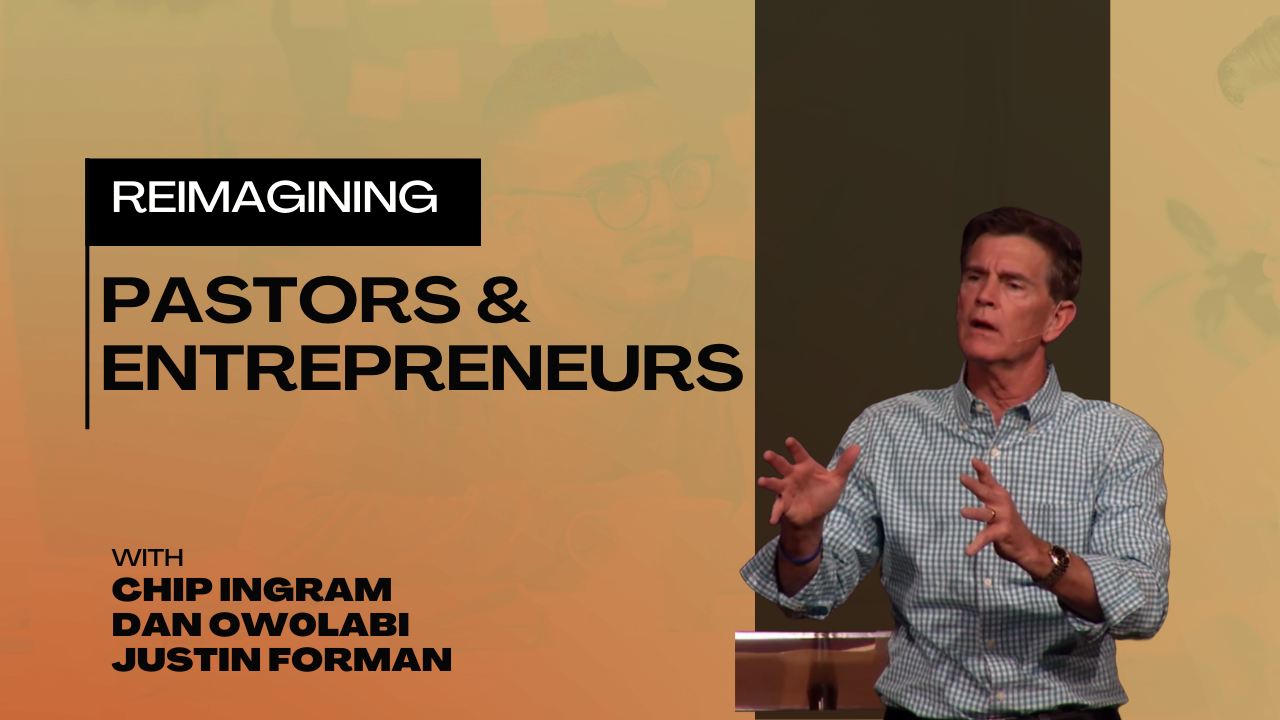
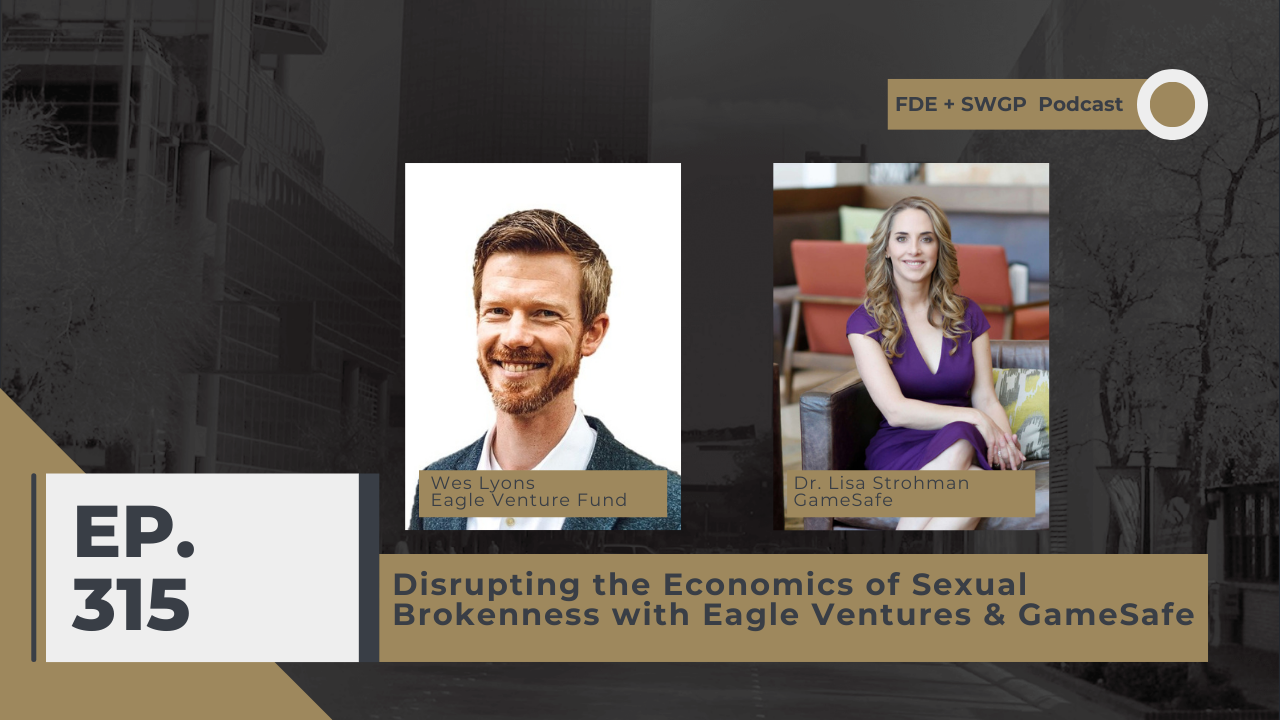

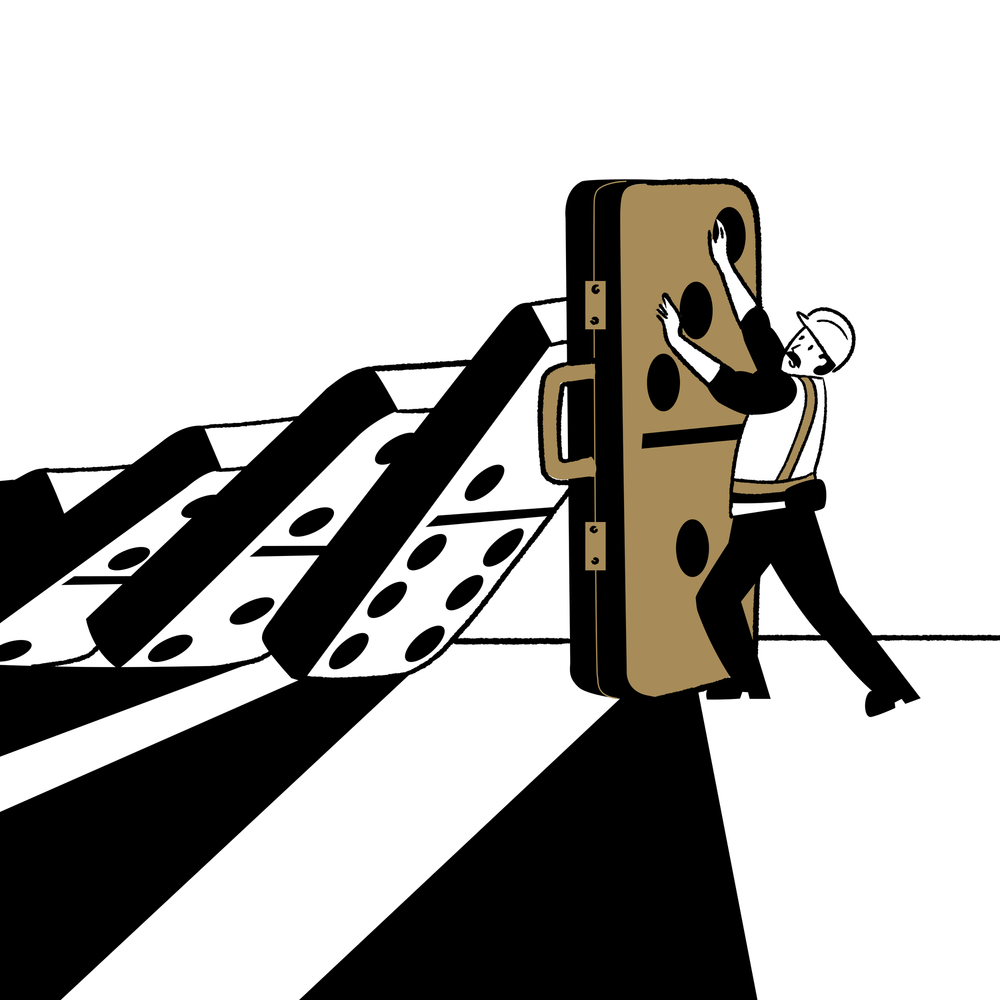
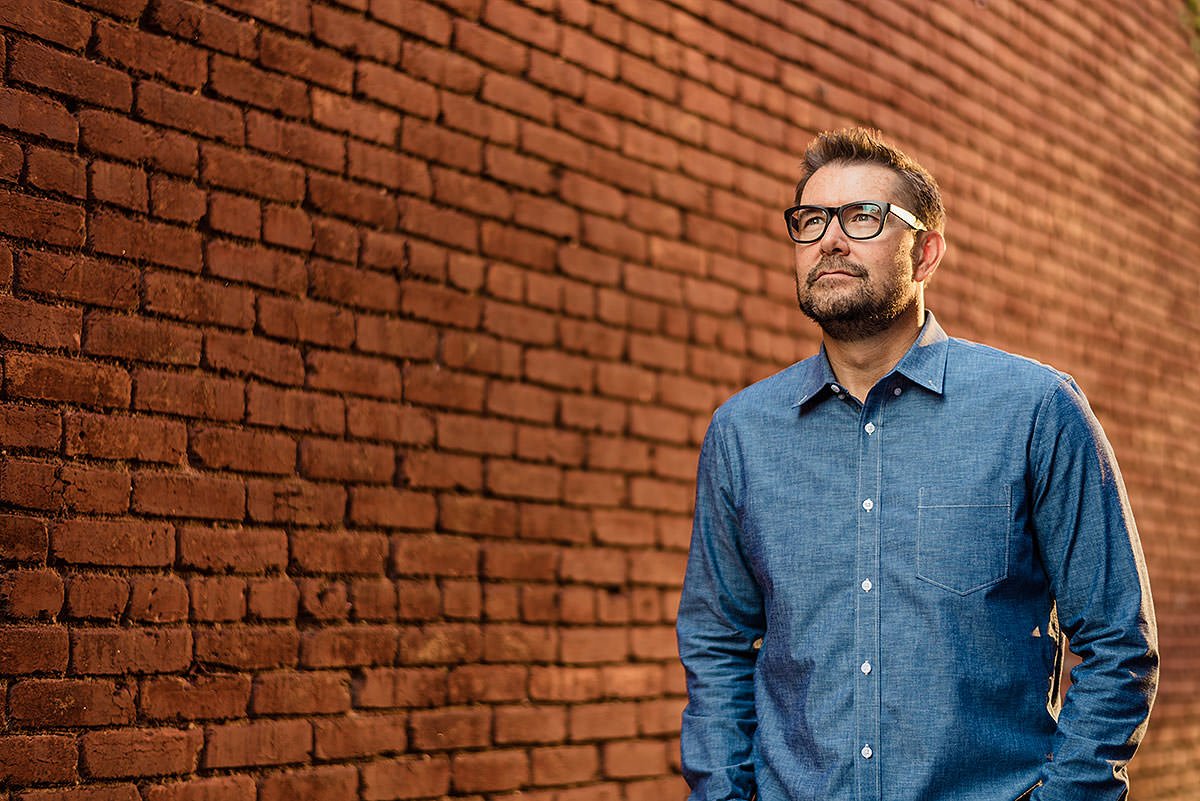
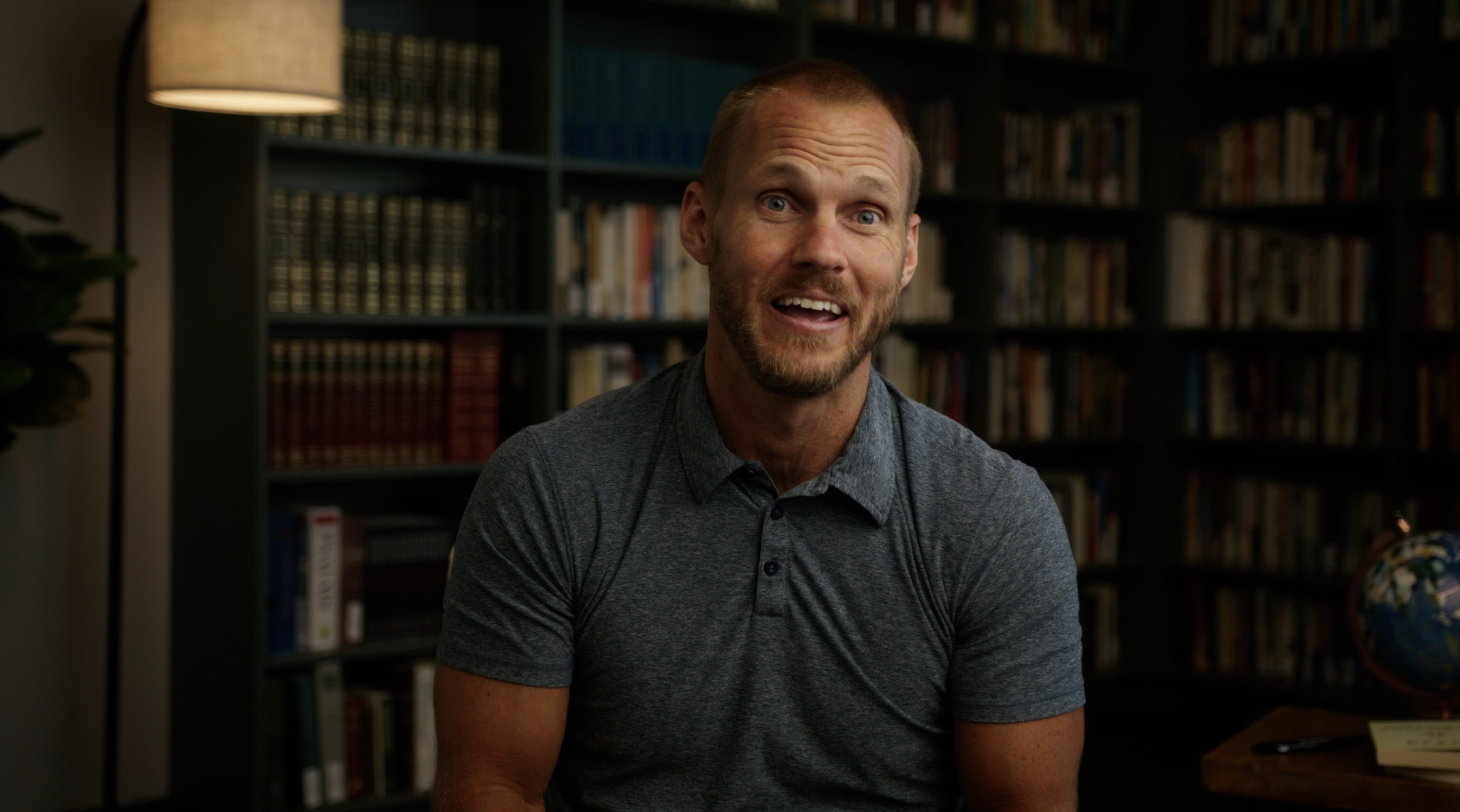
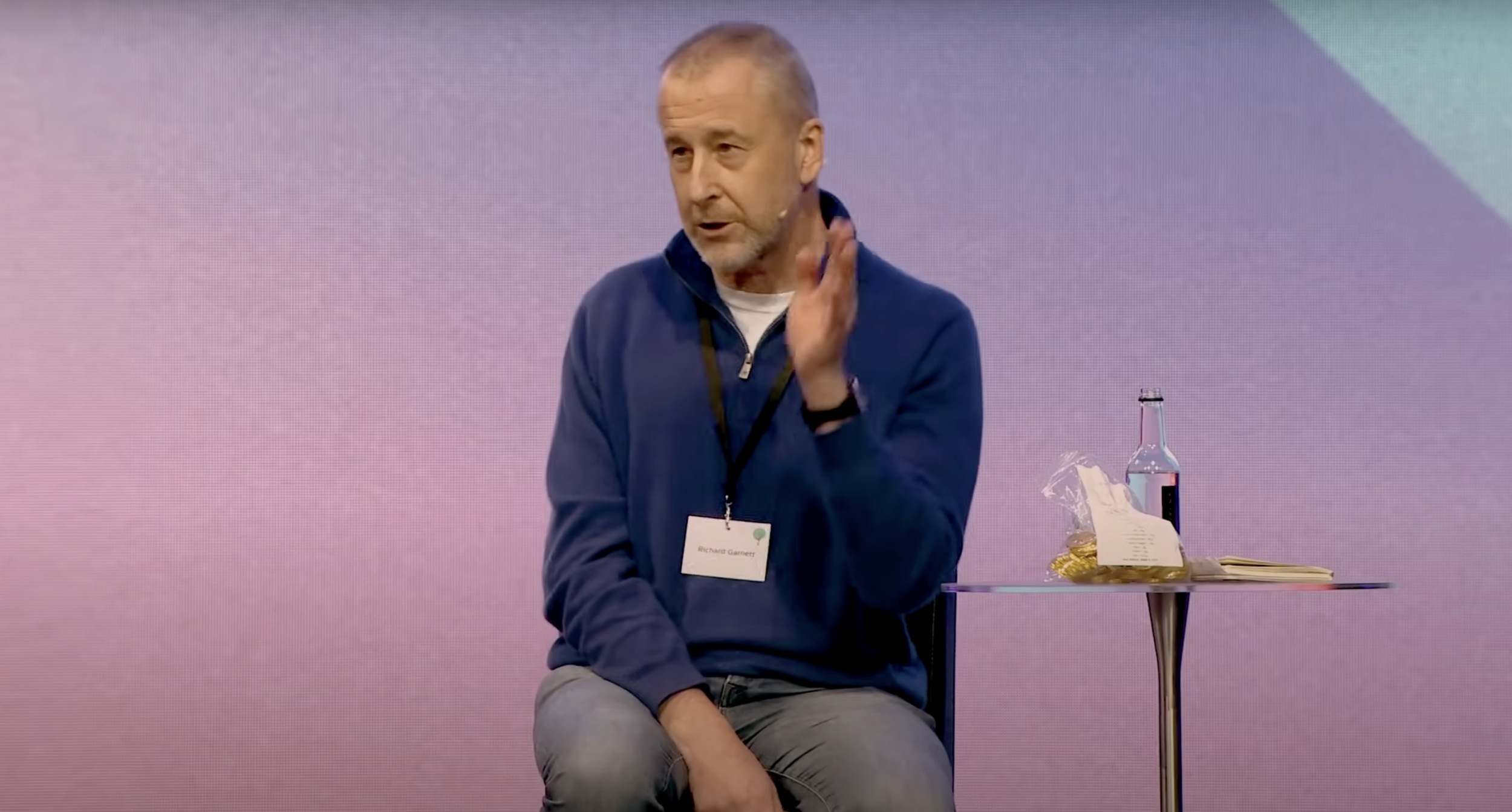

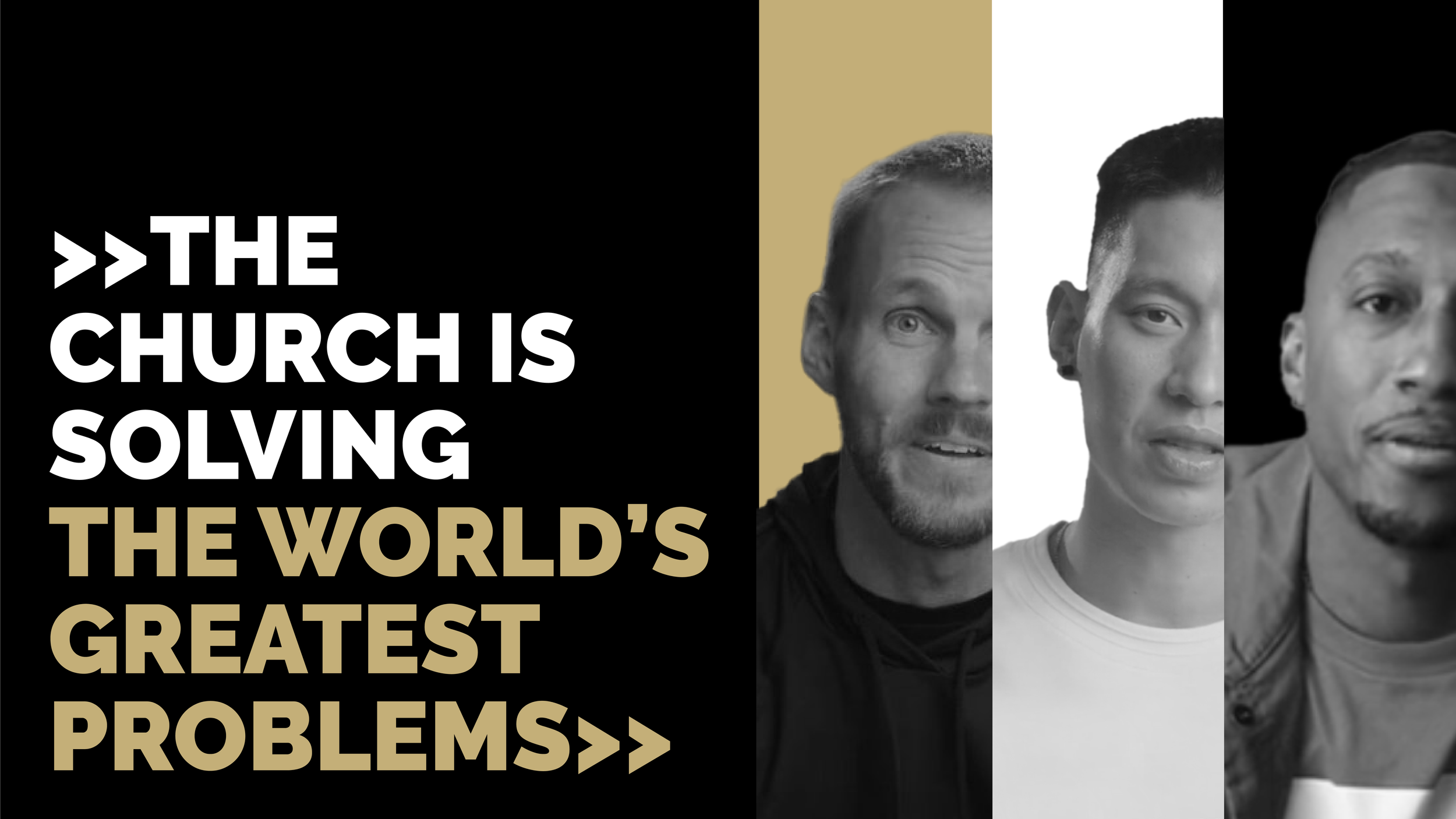
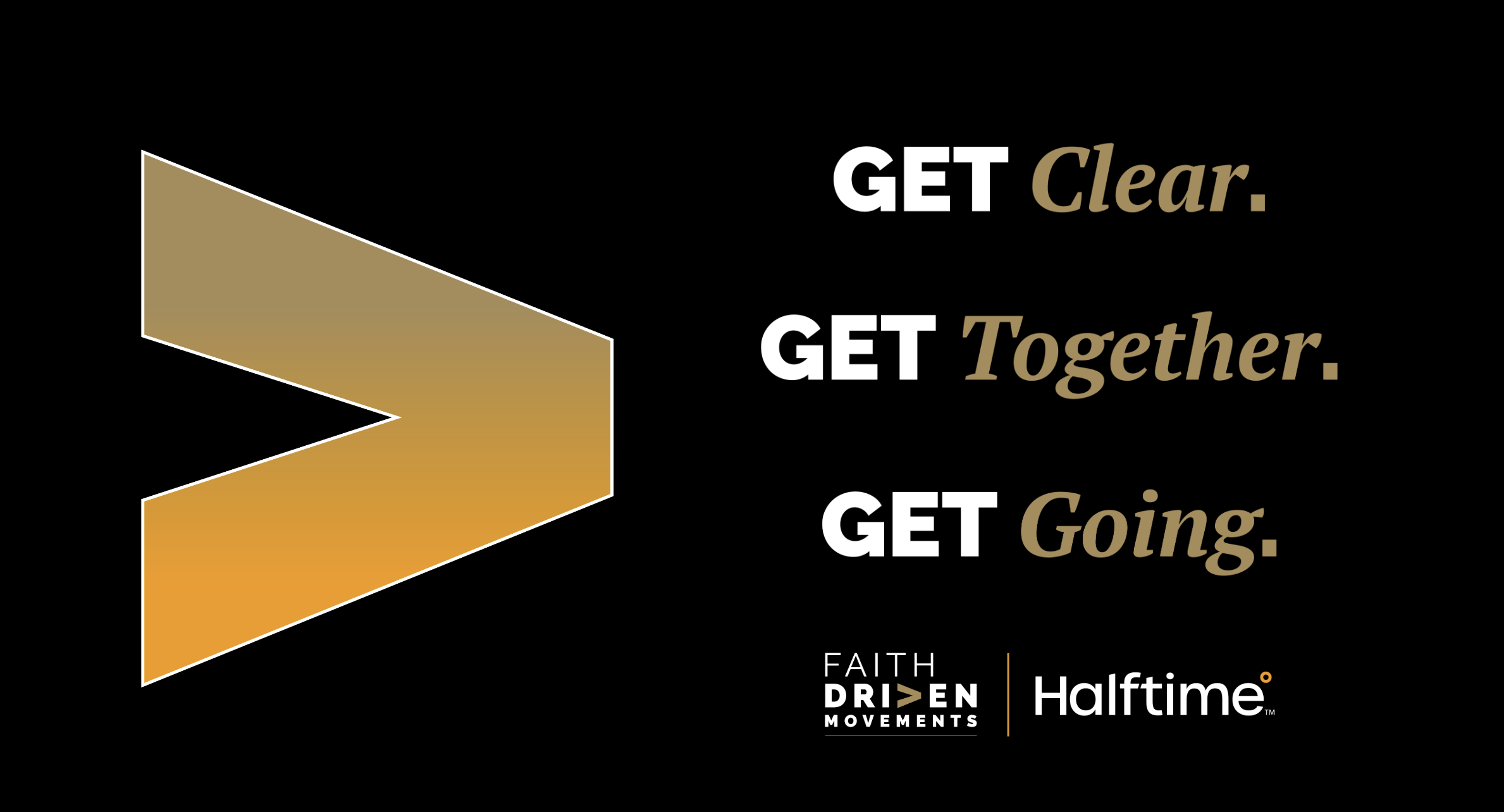
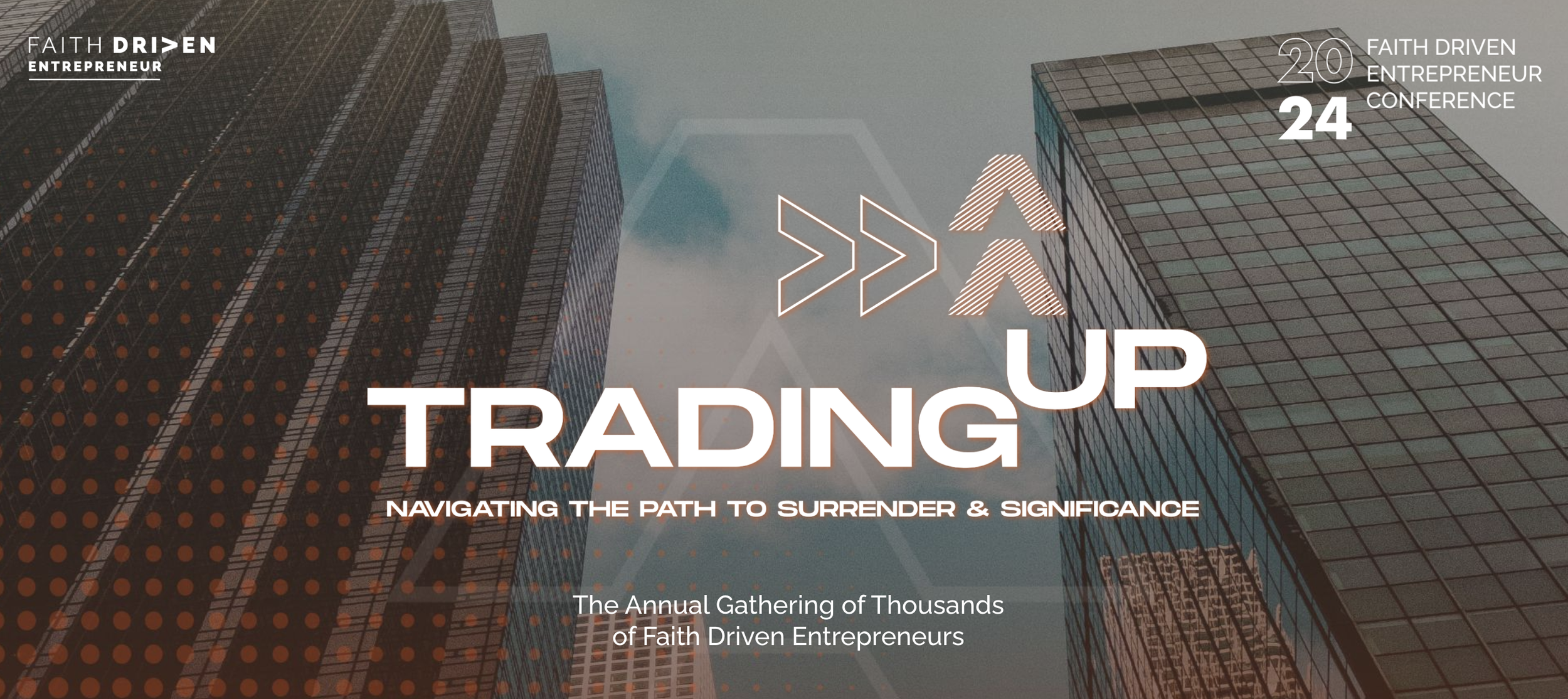
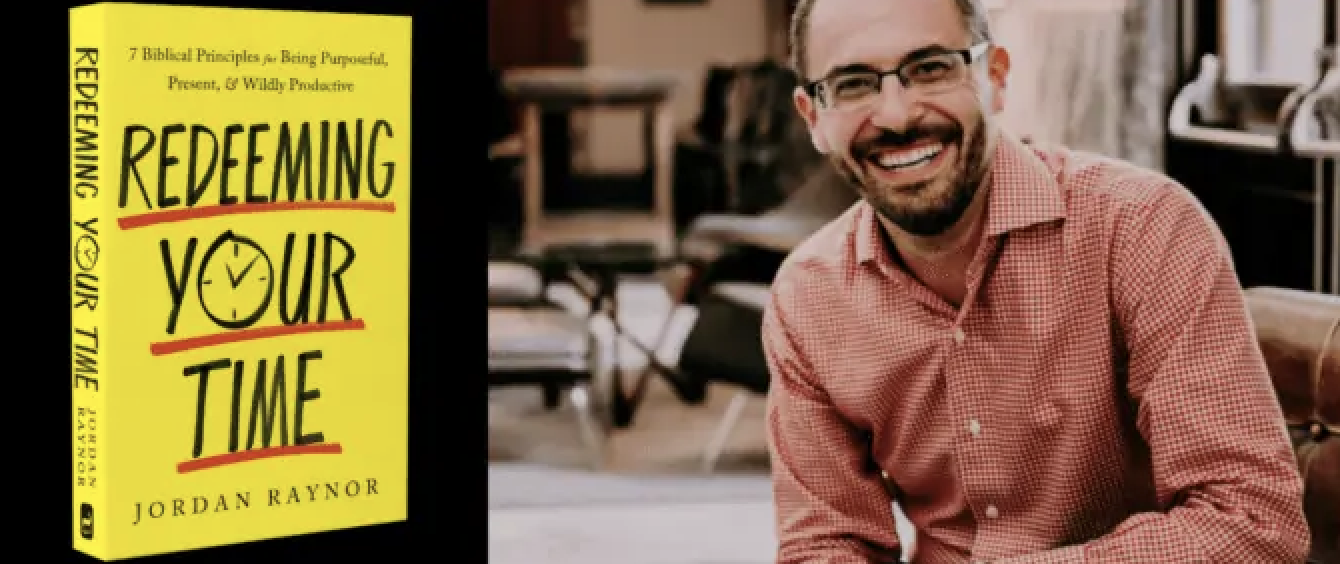
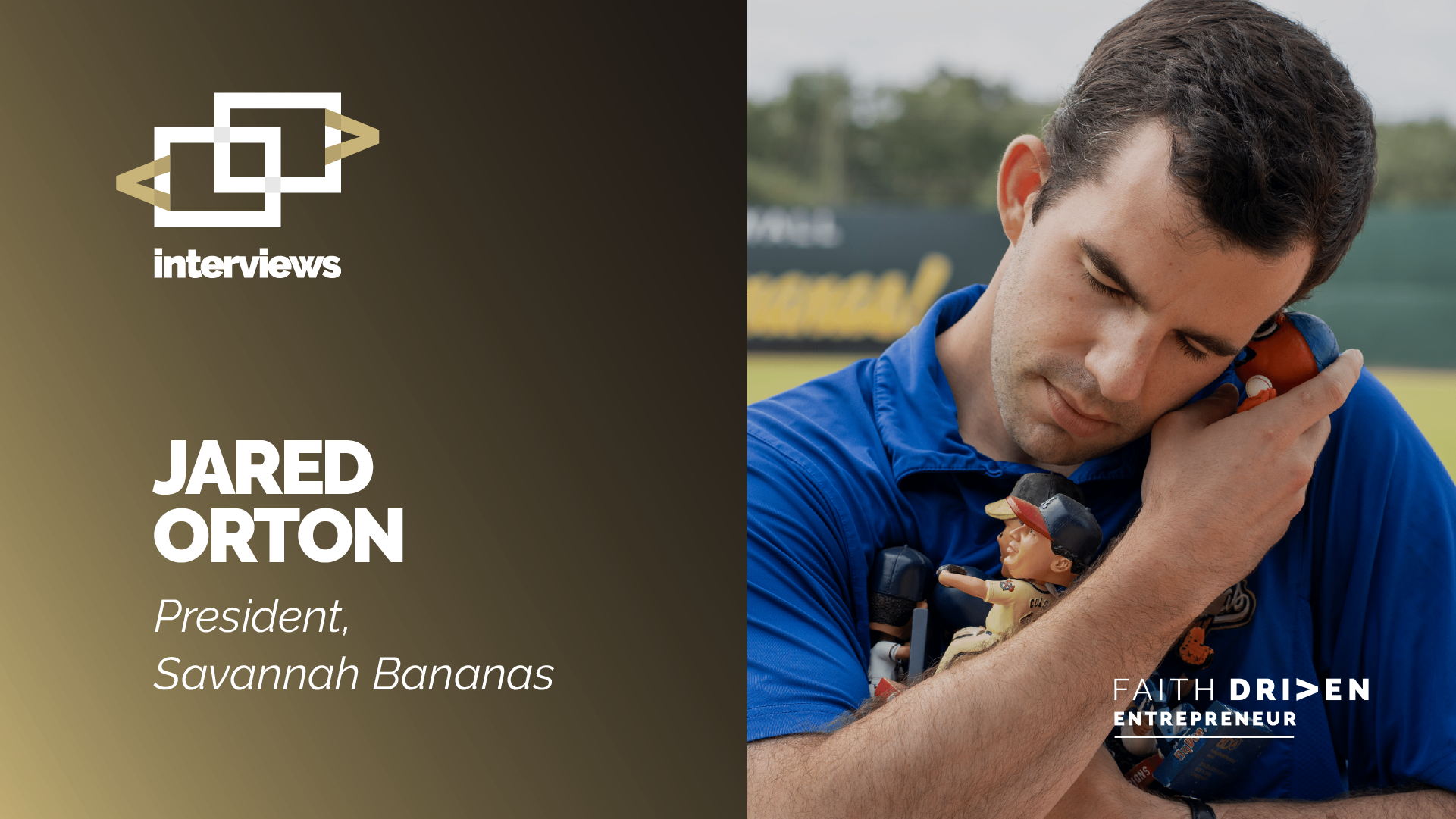
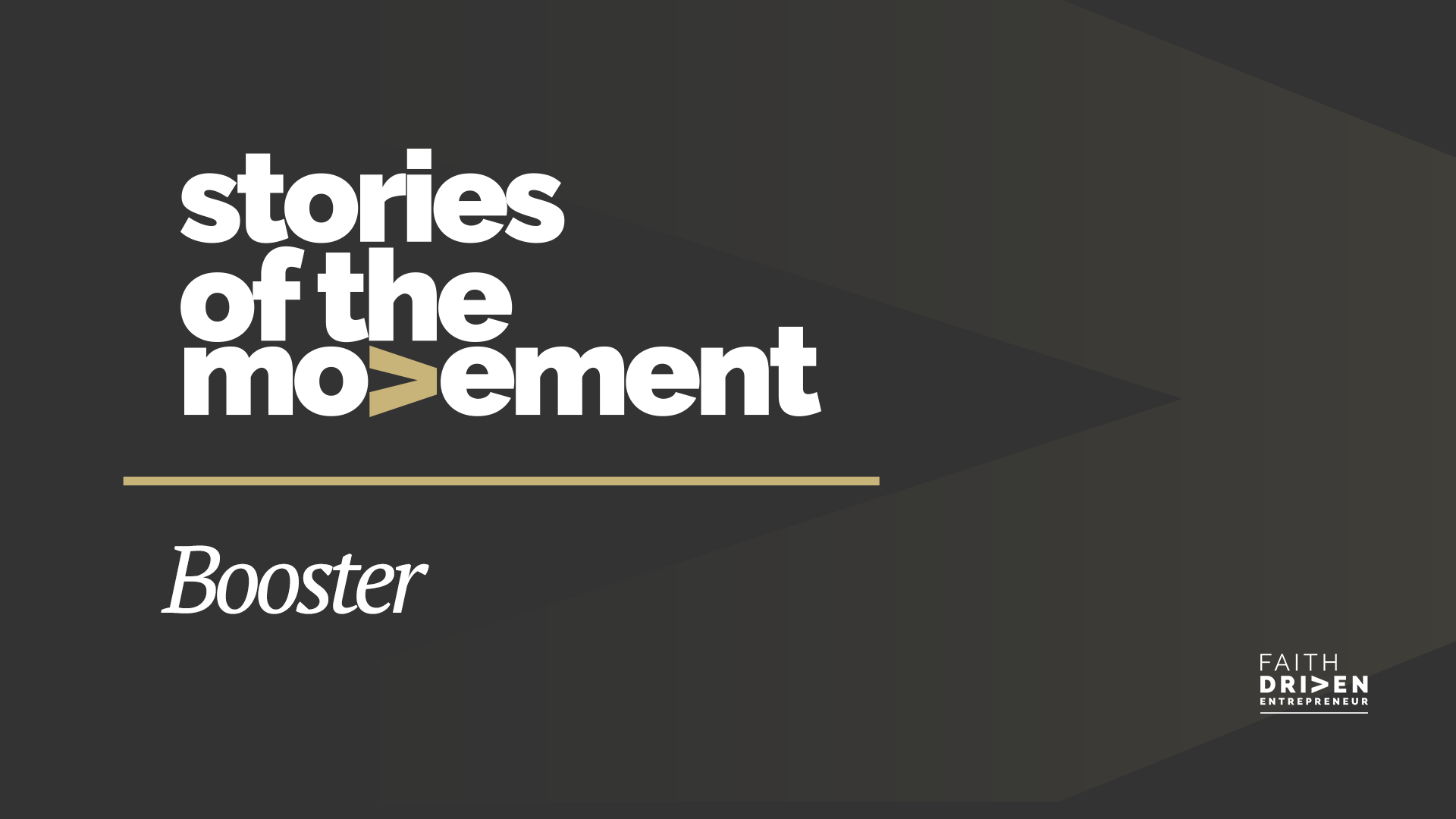



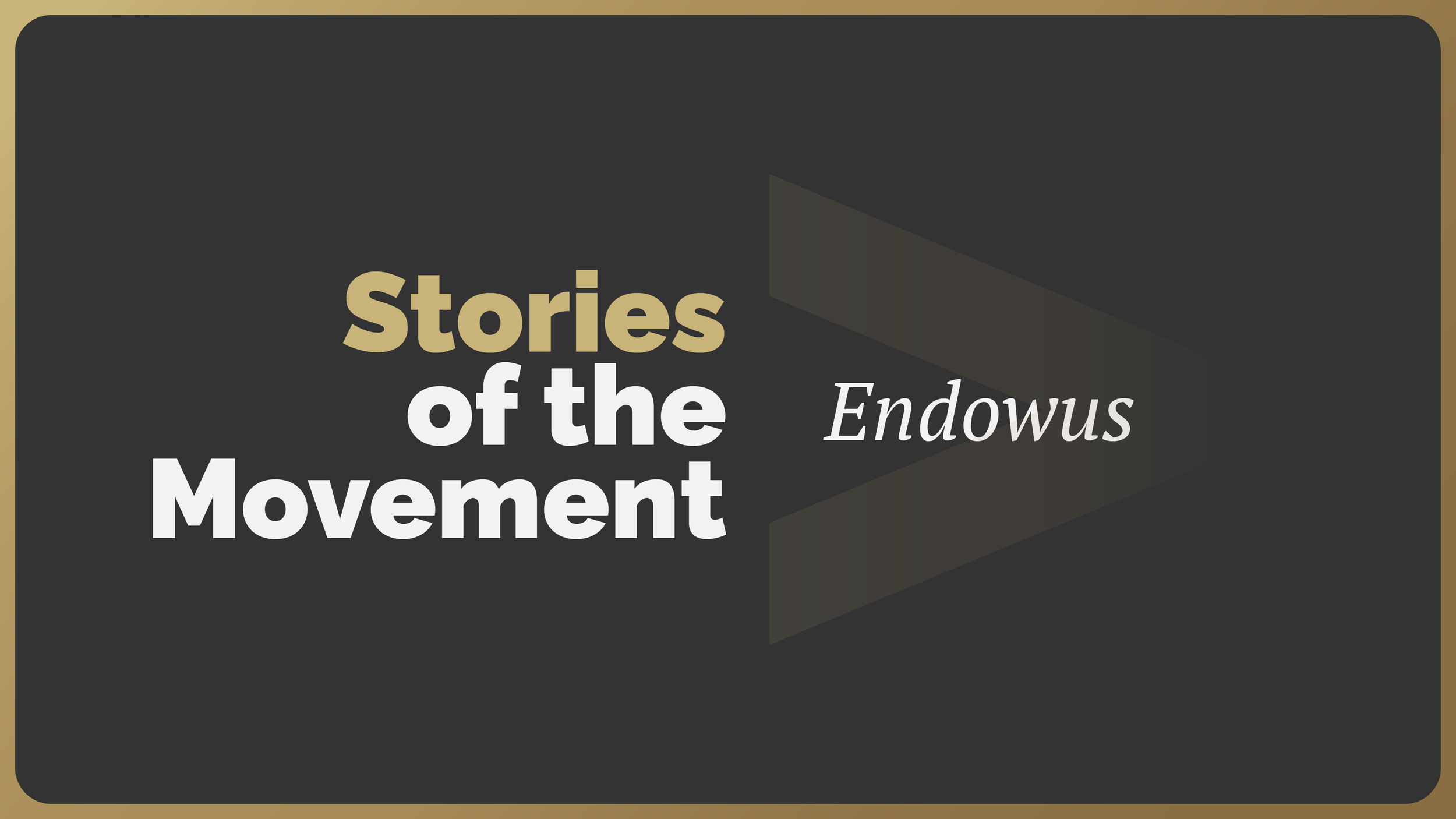

Follow the podcast